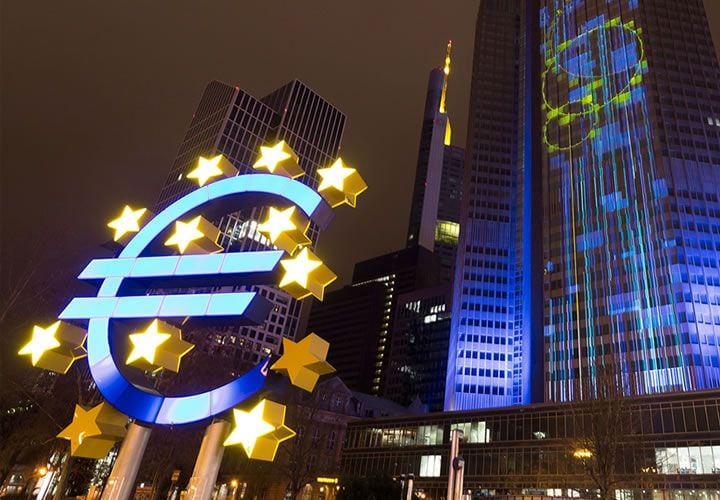Euro: A Light at the End of the Tunnel?

Bond fund Pimco has recently upgraded its monetary policy outlook for the Eurozone, based on the ECB’s hawkish adjustments to the language of their recent statement, supply constraints for their bond-buying programme and increasing risks to financial stability from ultra-loose policy.
The largest bond-fund in the world is now more certain that the ECB will begin tapering of their asset purchases at the start of 2018.
Pimco’s Andrew Bosomworth sees the September ECB rate meeting as a prime opportunity for Draghi to give a warning of their intention, which makes the autumn a potentially crucial time for the Euro.
The progressively tighter monetary policy outlook places a floor under interest rates as well as the Euro, which would be expected to appreciate once the ECB started making it clear it was preparing to taper QE.
The fund operator bases his views on a combination of factors, however, one of these appears to be that ultra-loose monetary policy is no longer efficacious.
He notes, for example, that the arguments around low core inflation in the Eurozone miss the fact that there are offsetting risks to financial stability.
“However, monetary policy does not exist in a vacuum; it co-exists alongside fiscal and structural policies and it needs to consider financial stability. Monetary policy contributed substantially to the world’s and Europe’s recovery from the financial crisis and even more so of late than fiscal and structural policies, which have waned.
Yet the efficacy of monetary policy is declining, and the risks to financial stability from a misallocation of resources are rising the longer monetary policy continues in its current form,” said Bosmoworth.
In addition, he notes how despite the low inflation problem, the output gap in the Eurozone is closing, which means the region is starting to operate nearer to full capacity.
“And despite subpar core inflation, growth in output is closing in on the Eurozone economy’s potential,” he notes.
Finally, Bosomworth explains that the ECB cannot continue its bond-buying programme in its current format due to severe shortages of bonds, in specific countries.
It could be forced to start tapering simply due to lack of supply.
“Furthermore, our analysis suggests that the rules it has set itself for the purchase of sovereign debt leave the ECB with no other choice but to taper purchases of government bonds further beginning early in 2018,” says Pimco’s Bosomworth.
Of course, the ECB could relax the rules it has set itself but that may cause discord amongst member states as the current system was set up to be scrupulously fair.
Pimco’s stance contrasts in tone to that offered by Morgan Stanley, who were not swayed to change their bearish view of the Euro after the most recent ECB rate meeting.
“The ECB hasn’t changed our EUR view. With the ECB presenting a largely unchanged stance, we think the EUR rally is the opportunity to sell,” says Hans Redeker, Morgan Stanley’s head of FX research.
Redeker highlights weak core inflation as the main reason for expecting more Euro downside.
“Draghi's remarks that there are no signs yet of a convincing upward trend in underlying inflation and that the upward revisions to headline inflation were due to higher energy prices highlighted the dovish tone struck today,” said Redeker.
Morgan Stanley remain short EUR/GBP for strategic reasons, saying Brexit risks are all priced in so GBP is at risk of appreciating.
“We still see a strategic reason to be short EURGBP too. The back and forth between the UK’s House of Lords and Commons continues as they try to pass a bill to trigger Article 50. We think, however, that Brexit risks are largely in the price for GBP, giving the currency an asymmetric risk profile.




